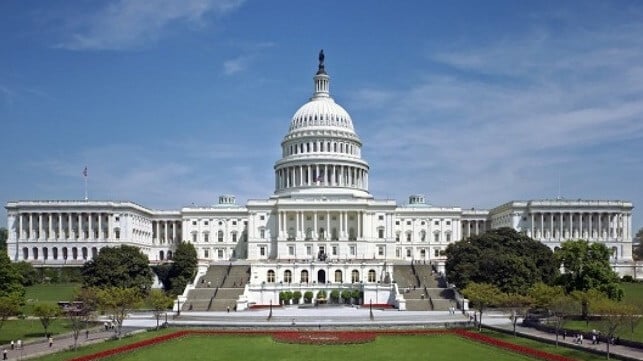More Proposed Reforms to Ocean Shipping Act Stir Up New Controversies

Less than a year after U.S. lawmakers were successful in completing the first major overhaul of the Shipping Act and getting it signed into law, efforts are being renewed to address additional issues in how carriers, as well as terminals, operate. The first bill was proposed last Friday, March 24, and it is already receiving strong criticism from the World Shipping Council, the industry lobbying group. Other bills are also expected to be proposed in the U.S. Congress in the coming days.
Five U.S. lawmakers all from California led by Representative Jim Costa introduced the Ocean Shipping Antitrust Enforcement Act which would repeal the exemption for foreign ocean carriers from all U.S. federal antitrust laws. The bill sponsors content that it would address unfair practices that harm American businesses, producers, and consumers.
"Foreign-flagged cargo vessels need to understand that access to the American market and its consumers is a privilege, not a right,” said Representative John Garamendi reiterating his position as one of the sponsors of the 2022 reforms. He believes last year’s act did not go far enough, saying, “Congress must restore balance at our ports and tackle the longstanding trade imbalance America has with China and other nations. Big business needs to play by the rules, and the foreign-flagged ocean carriers enjoy an exemption from federal antitrust law that no other transportation sector enjoys.”
They highlight that their bill which exempts carriers from antitrust provisions would reduce collusion and anticompetitive business practices, unjustified and unilateral container rate increases, and exorbitant detention and demurrage fees. Despite last year’s revisions to the Shipping Act, the sponsors contend that the carriers are still refusing American export cargo bookings, such as agricultural goods, at seemingly any price. They say the further amendments would untie the efforts of the Department of Justice, Federal Trade Commission, and Federal Maritime Commission to defend American exporters, shippers, and consumers from unfair trade practices.
The World Shipping Council responded forcefully saying that one of the consequences would be to do away with Vessel Sharing Agreements among the carriers. The trade group argues that the exemption permits carriers to share space which allows more carriers to provide more service to more ports. Removing the exemption they argue would undermine competitiveness, reducing shipping options into a broader range of ports.
“Nobody has offered a reason why we should throw away such a useful tool as VSAs, and I think some of the rhetoric comes from a misunderstanding about how VSAs help the supply chain work better,” said John Butler, WSC President & CEO.
The sponsors of the antitrust bill cite an argument that was used last year when the U.S. Department of Transportation reported that the 10 largest ocean carriers, all of which are foreign-based companies operating foreign-flagged vessels, control more than 80 percent of the shipping market and work together to control capacity along routes.
The World Shipping Council seeks to dismiss that figure by saying that there are no carriers with a capacity share above 20 percent. Across the industry, there are only three carriers with capacity shares higher than 10 percent and only seven with capacity shares above five percent globally, according to their calculations. The WCS points out that this argument was used to introduce a similar reform bill in the last Congress that did not gather significant support.
“For far too long, foreign shipping monopolies have manipulated the ocean shipping industry and employed unfair trade practices, hurting American exporters and consumers,” said Representative Costa introducing his latest legislative initiative. “We have seen delays, congestion, and empty containers leaving American ports. It’s unfair and drives up costs. My legislation will hold foreign monopolies accountable, lower costs, and level the playing field in ocean shipping.”
The argument that the carriers have formed a monopoly has emerged from trade organizations in various parts of the world and has been raised with regulators in Europe and Australia. In the United States, two FMC commissions, Carl Bentzel and Max Vekich, expressed their support in a letter to Congress last year calling for the rules on how the FMC proceeds if it finds agreements are anticompetitive. FMC Chairman Daniel Maffei has said that he also supports reforms of the process for addressing anti-competitiveness practices among carriers.
Representative Dusty Johnson supports the antitrust bill, but also has said he thinks more issues need to be addressed that were excluded from last year’s reforms during the reconciliation between the drafts in the U.S. House and U.S. Senate.
The World Shipping Council responds to the initiatives by saying the liner shipping industry remains competitive. They point to declines in freight rates in the decade before the pandemic and Maffei’s testimony before the U.S. Congress saying that ocean shipping was exerting downward pressure on price inflation. They also highlight an FMC report from May 2022 that found carriers compete on price and market independently and vigorously, despite their alliances.
No comments:
Post a Comment